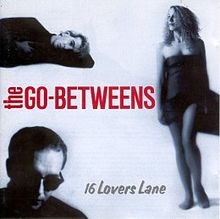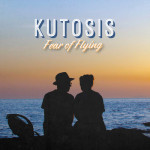It’s obvious why some of my favourite “great lost albums” never sold like hot cakes. The Wedding Present’s Seamonsters, for example, a 45-minute howl of sexual obsession and rejection set to droning feedback; or King of the Slums’ Blowzy Weirdos, abrasive urban folk delivered in a thick Mancunian brogue.
But 16 Lovers Lane should have outsold the likes of Thriller or Rumours. It’s brilliant. To hear it is to fall in love with it. Basking in its shamelessly romantic, melancholy balm is one of music’s greatest pleasures. It sold about 17 copies. OK, I exaggerate, but not by much.
Prior to 1988, the ‘Tweens were a cult indie band, very much part of the post-Smiths wave of bedsit romantics. Over the course of five albums which mixed quirky, angular, literate post-punk with warm, jangling love songs, they’d won considerable critical acclaim but had failed to trouble the charts, despite producing heavenly pop like “Bachelor Kisses” & “Bye Bye Pride”. Some of the songs were maybe just too arty, too lyrically obtuse to connect with more than a small cult following.
But 16 Lovers Lane was different. Gone were the sharp edges, the lyrics were more accessible, the production slicker, the guitars acoustic, the strings lush & romantic. The critics raved, but after my first listen I hated it, as did many ‘Tweens fans (in fact the 16LL debate still rages on at www.go-betweens.net). A week later, the cassette had nearly worn out I’d listened to it so much, since when I’ve been through another cassette copy and a CD, and the album is now no1 on my iPod’s playlist.
Because of the very different songwriting styles of the band’s two frontmen, Robert Forster (angular, wordy, often lyrically impenetrable) and Grant McLennan (warm, melodic, heartfelt) Go-Betweens albums often sound like two solo albums welded together. 16LL doesn’t. It’s harder than ever to identify who wrote what, giving it a cohesiveness their other albums lack. Thus Forster’s poignant “I’m Alright” sits easily alongside McLennan’s yearning “Quiet Heart”. Forster gets untypically confessional here and that’s what creates the chemistry.
Opening track “Love Goes On!” pulls off the old New Order trick of taking a clunky lyrical couplet (“There’s a cat in my alleyway, dreaming of birds that are blue/Sometimes girl when I’m lonely, this is how I think about you”) and delivering it with such honesty that it sounds improbably moving; and from then on it’s just one great song after another, highlights being the impossibly romantic “Devil’s Eye” (“Sometimes we don’t come through, sometimes we just get by/But I know with you I’ve never seen the Devil’s eye”), almost-hit “Streets of Your Town”, as good a pop song as the 1980s produced, and the closing, heartbreaking reminiscence of “Dive For Your Memory” – only the stoniest of hearts can remain unmoved by words like “We stood side by side, strong and true/Just wish you’d remember, bad times don’t get you through/So when I hear you saying that we stood no chance/I’ll dive for your memory, we stood that chance”.
Stunned by the public’s inexplicable indifference to their masterpiece, the band split, and didn’t release another Go-Betweens album for another 12 years. In 2005 they released the true follow-up to 16LL, their third album since reforming, the brilliant Oceans Apart, and even had a hit single throughout Europe with “Finding You”. On a creative and, for the first time, commercial roll, the band were about to begin recording another album when McLennan died unexpectedly in his sleep at the tragically young age of 48, his best work possibly still ahead of him; the outpouring of memories and tributes on the band’s website showing how much his songs meant to those who heard them.
In an interview with NME in 1988, McLennan said “I maintain that The Go-Betweens write about love better than anybody else in the world.” 16 Lovers Lane remains glorious, magical proof.




